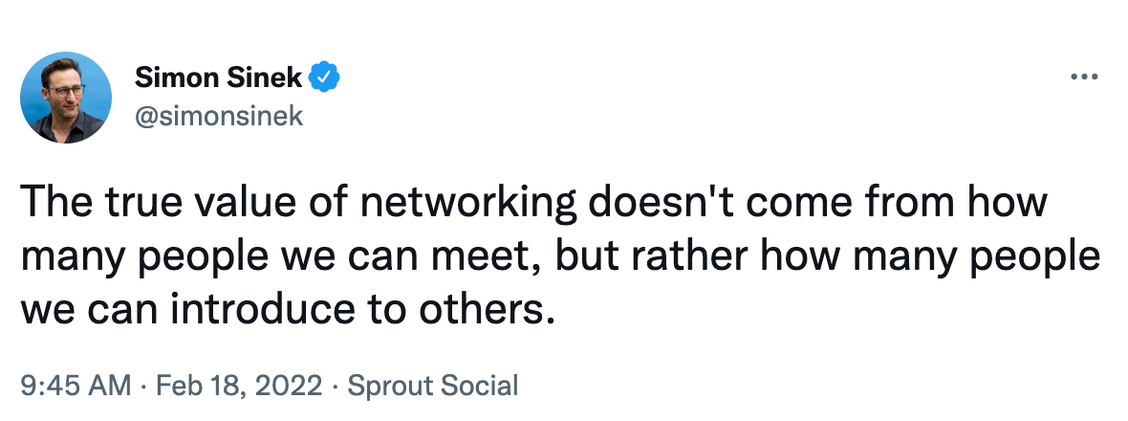For many of us, networking is a dirty word. It brings up images of a self-serving, professional-climbing activity that exists almost for its own sake. But we all have networks, even if we don’t think of them that way. It may help to think about your community, instead of your network. And strengthening the friendships and relationships–and making new ones–in your community can be a great alternative to a round of speed networking at your next conference.
Table of Contents
Why networking is a dirty word
We’ve all known someone who considers themself (to be honest, it’s usually himself) a consummate networker. This person seems to use every social opportunity as a way for themself to get a leg up on the competition. Frequently, he goes to an on-campus event or a happy hour with the single-minded goal of meeting the most “important” person there and making an impression. For many of us, watching that person operate can feel sketchy and a bit gross, and we don’t want to imitate that.
One of the reasons that networking is so problematic is because the very word suggests that the whole point of networking is to either climb a ladder or to make yourself more important. Or worse, that the networking is an end unto itself.

Photo by Product School on Unsplash
Threads and nets: the power of many
A single piece of thread—by itself or tied to one other—is not very strong.

A single piece of thread tied to many threads can be a little stronger, but it still creates a lot of pressure on that knot in the middle.
However, if you start tying threads not just to a central point but to each other, creating connections upon connections, you’ll be able to create a net that can accomplish way more than a single thread.
You can see this all the time, in anything from a spider web, to a cargo net, to a hammock, to even woven fabric. Thousands or millions of connections create something as delicate as silk or as strong as kevlar (or, if you prefer the elvish, Mithrael). The more connections it has, the more a net can hold–or accomplish.

The same principle works with people, and the support networks that we build. Recently, I came across this Simon Sinek tweet that really spoke to me:

Networking in the “traditional” sense is self-serving, but building your support network is a different thing entirely. Instead, it involves recognizing what’s special in the family, friends, colleagues, or classmates, and finding opportunities to connect with them in different ways. And finding opportunities to connect them with others that can help them grow.
As you look out and aim to make connections to strengthen and help those around you, they’ll do the same for you. And that’s where the magic happens.
Want to start building your network?
If you’re looking to work on strengthening your network, these two posts can help:
- Learn about how LinkedIn can help you strengthen and grow your network
- How to Informational Interview when starting your career or pivoting
Or check out Relationships to Infinity: The Art and Science of Keeping In Touch, a great new book by my friend Jason Levin. It provides tips for taking action now to get in touch and stay in touch with the friends and connections you already have.
Three takeaways from this book that stuck with me:
- Think about how you can help the people you already know, or reach out to them when you’re reminded of a shared memory or interest. (Even something as simple as sharing an article they might enjoy). This helps you stay in touch without feeling like you’re doing it to be self-serving.
- If you have lost touch with someone you know over the years, don’t let the time apart keep you from reaching out. If you’re not sure how they’ll respond to you reaching out after all this time, think about how you would feel if you heard from them.
- Make time for staying in touch. Budget 30 minutes a week to reach out to people you know but haven’t seen lately. (Bonus, keep a list or a spreadsheet, and you’ll be able to more easily know when you were last in contact).
Latest Posts:






